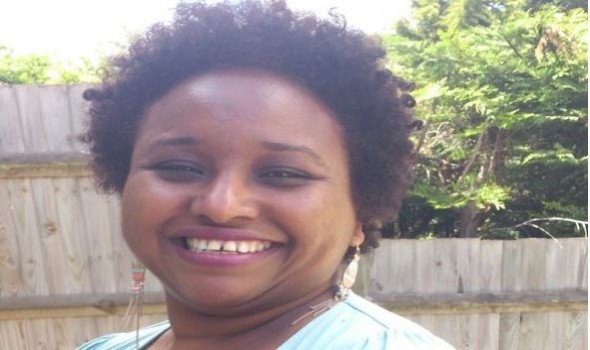Namaa's story
Namaa's story

Meet Namaa: A microbiologist, political activist, blogger, avid reader and family woman. She’s one of those people you come across once in a while that exudes an energy uncommonly found today for a woman so young. When she talks about her life, her journey and her work, you wonder how there could possibly be enough time in a day to accomplish all that she has.
Namaa was educated in genetics, receiving an MSc in microbiology from Birkbeck University. But today her work is largely focused in the world of political activism and human rights.
It’s possible that it all began in 1996 when Namaa first participated in a student protest in London, marching from Gower Street to Westminster against increasing student fees. Though she would later go on to graduate and work as a Molecular biologist, it was when she returned to her home country, Sudan, to set up a DNA analysis lab with one of the universities in Khartoum, that she seriously began to get her feet wet in the movement for social change.
While in between assignments in Khartoum, a family member asked her to volunteer at a Sudanese non-governmental organisation to write proposals for funding. The task eventually became more complex as she was then responsible for setting up the entire funding system of the organisation in order to expand the scope of the organisation’s work in adult education and development.
Namaa became more active, joining discussion groups, conversing with journalists and networking with the Sudan Tribune—an online newspaper with considerable readership—and Sudanese Online. The matter for discussion: The government’s gross violation of human rights and the abduction, torture and killing of Sudanese people.
So when the Sudan Youth Movement for Change (SPARK) asked for her assistance in mobilising support for protest, Namaa reached out to her media contacts and successfully increased the number of participants. However, after the protest, 168 people were sent to prison, two of which were her relatives and cousins.
In response, Namaa’s sister began gathering the families of those detained to protest for their release. However, in order to protect the families from getting arrested as well, Namaa saw the necessity of providing support:
“While they were participating in the sit-ins, I was getting in touch with the press to provide a cover for them so that they could go out safely and carry out their protest. I also got touch with international foreign offices from different parts of the world, concerned with Sudan.”
Her initiative was successful; half of the detainees were released after the first protest and the rest were released by the next. All of this occurred in less than three weeks.
“[This] is not usual in Sudan. Usually what they do is arrest you for about six months and the norm was that when people form a petition, the petition goes nowhere.
They would not present their petition to an influential group, like the FCO or the UN or the African Union. That’s where I made the difference. I presented the petition to the FCO, I presented it to the UN, and I presented it to the African Union. I pushed it that bit further. It wasn’t people putting their names on a piece of paper and it going nowhere, it became a piece of paper that went somewhere.”
Social media strategies have played a key role in the success of these campaigns Platforms such as Twitter and Facebook provide communication channels, opening up an online portal of dialogue and information on situations in Sudan. Namaa says,
“Targeted, loud protests are more effective. [On social media] you have to tag the right people, tag the right media and get as much media coverage as possible. Social media has provided a leveling ground for activists around the world we now have the media communication tools we need at our disposal, dictatorships who previously used the cover of media censorship to hide the atrocities they commit against their own people have nowhere to hide.”
Namaa’s ability to think strategically and be undeterred by the relentless nature of dictatorships, even, has brought little victories to those willing to fight for human rights.
Her deep involvement in political movements in Sudan has become the work that demands most of her time and attention. Now she no longer works as a molecular biologist, but continues to partner with the Arab and Sudanese media and international Human Rights organisations to raise awareness and fight for the human rights of the Sudanese people. She writes in her regular blog, which has gained many followers over the years and hopes to utilise her skills locally by focusing her attention on working with diaspora groups in London.
When not engaging in advocacy, Namaa enjoys reading. Her favourite place in London is the British Museum because, “there is so much to learn, something new to see every visit. It’s amazing what people have achieved so far.” One can say the same about Namaa, a woman working tirelessly to continue advancing human rights, one campaign at a time.


